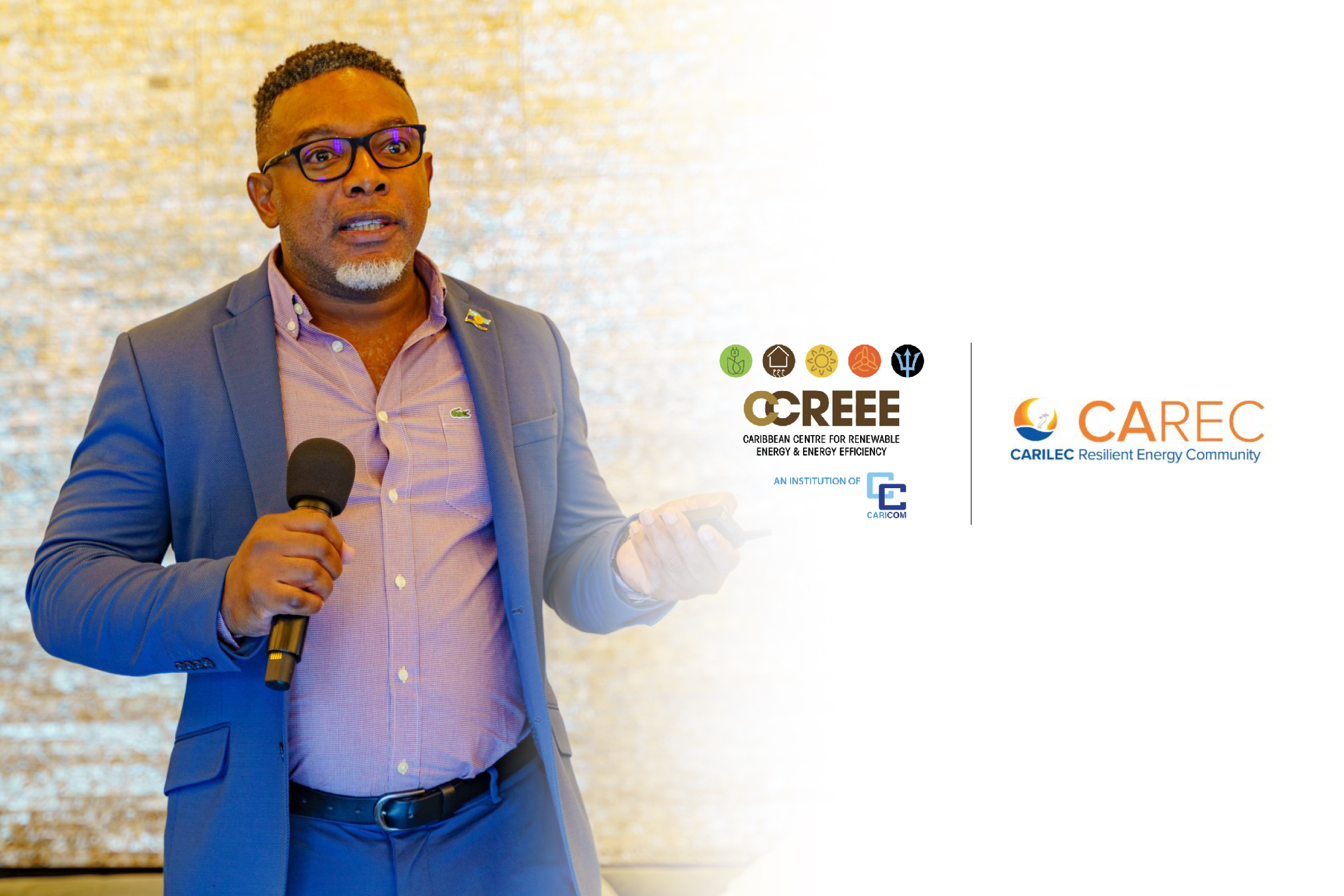Democratizing the Caribbean Energy Sector through the Utility-centric Promotion of Distributed Energy Resources
Head of Technical Programmes, Dr. Devon Gardner and Capacity Development and Gender Expert Cherri-Ann Farquharson recently represented the Caribbean Centre for Renewable Energy and Energy Efficiency (CCREEE) at the CAREC Conference and Exhibition held from September 24-28, 2023, in Miami. Dr. Gardner presented on the topic “Democratizing the Caribbean Energy Sector through the Utility-centric Promotion of Distributed Energy Resources”, sharing critical insights and strategies necessary for the region’s energy transformation. His presentation is of particular importance, given the pressing need for sustainable and resilient energy solutions in the Caribbean region, in which the CCREEE plays a role.
Dr. Gardner first highlighted the CCREEE’s key areas of focus, which collectively address the multifaceted challenges facing the Caribbean’s energy sector, namely, Climate Resilience, Sustainable Industry & Business, Energy Access, Sustainable Buildings, Sustainable Transport, Financing & Project Support, and Knowledge Management & Knowledge Transfer. Several key takeaways emerged from Dr. Gardner’s presentation, which supported a sustainable and resilient energy future, including:
- Immediate Action is Imperative: Now-term projects are of utmost importance. They are critical tools to address existing system reliability and stability issues wherever they arise.
- Reliable Power is Needed to Fuel Productivity: The availability of high-quality power is vital for the productive sectors of any economy. The Value of Load Loss (VoLL) metric underscores the massive impact of power unavailability on national GDP, often exceeding national tariffs by one to two orders of magnitude.
- Energy Security at the Forefront: Energy security risks stemming from the reliance on fossil fuel supply chains have become a top priority. This highlights the need to reduce dependence on external sources and accelerate efforts to harness the region’s own resources and technology for energy production.
- Challenges in Replacing Hydrocarbons: Recognizing that hydrocarbons and their infrastructure are central to the energy value chain, it’s clear that replacing them will be a complex, time-consuming process requiring resource and asset adjustments.
- Alignment with Resilient and Affordable Energy: Any new investments in the energy sector should align with the emerging objectives for resilient and secure energy supplies that are affordable and predictable in pricing.
- Renewable Integration for Optimal Resource Allocation: There’s a strong emphasis on integrating renewables into the energy market. This approach ensures the optimal allocation of diverse energy resources and promotes a stable and secure energy supply while contributing to the decarbonization of power generation.
- Electrification’s Significance: Recognizing the role of electrification in various end-use sectors is vital. It’s an essential component of the energy transformation process.
- Energy as an Economic Sector: Finally, there’s an opportunity to shift the perception of energy from being a mere enabler of economic drivers to becoming a key economic sector. This transformation holds the potential to reshape the region’s economy.
These takeaways underscore the urgency of addressing current energy challenges, prioritizing energy security, transitioning away from fossil fuels, embracing renewables, and recognizing the economic potential of the energy sector. By acting on these insights, the Caribbean region can pave the way for a sustainable and prosperous energy future.
